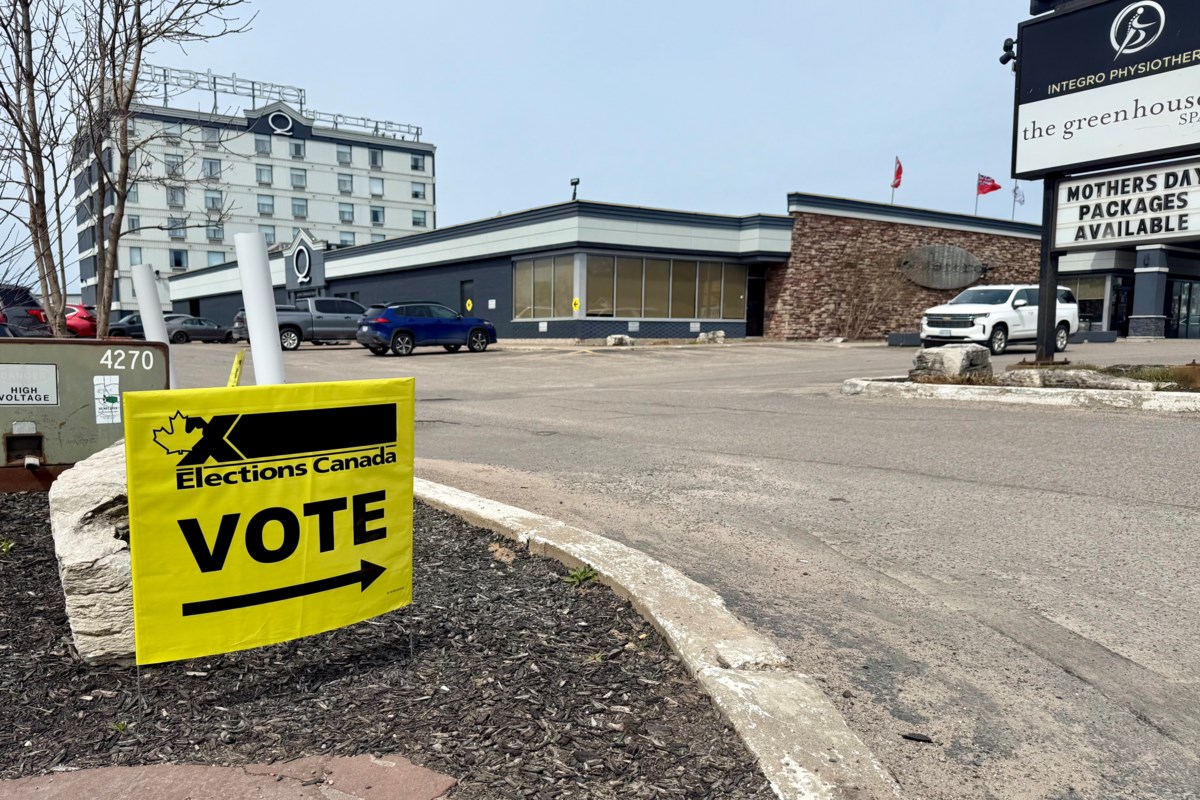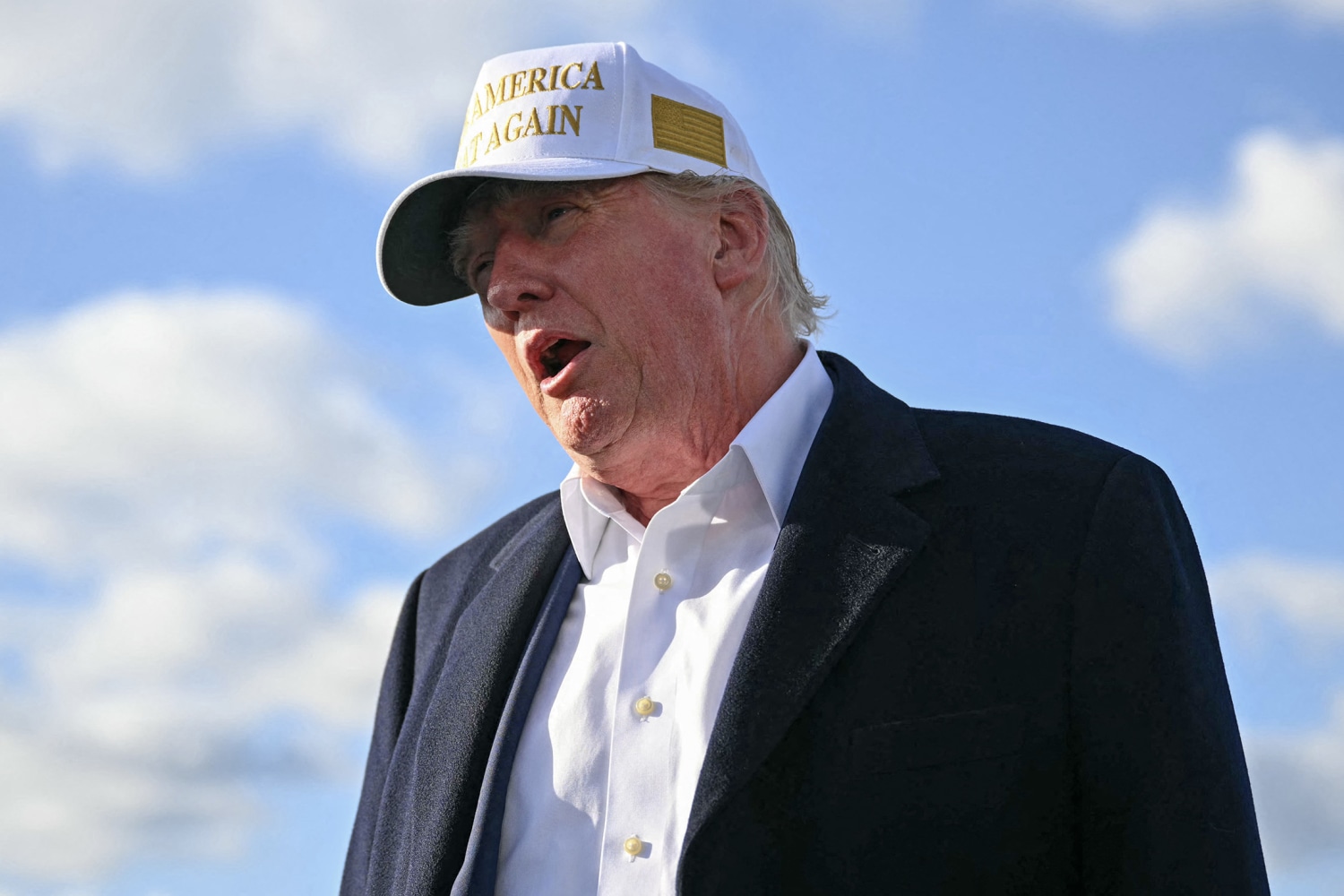Trump’s War With The Media: Corporation For Public Broadcasting Sues Trump

Share to Facebook Share to Twitter Share to Linkedin The Corporation for Public Broadcasting sued President Donald Trump Tuesday to block him from removing three of its board members—one of several battles between Trump and the press as he’s taken a more aggressive approach to dealing with his media foes during his second term. President Donald Trump speaks to reporters before boarding Air Force One in Morristown, New Jersey, ... More on April 27, 2025. (Photo by MANDEL NGAN/AFP via Getty Images) AFP via Getty Images The Corporation for Public Broadcasting seeks a temporary restraining order to prevent Trump from removing three board members—two appointed by Biden and one appointed by Trump during his first term then reappointed by Biden—arguing the law that established the organization allows Trump to appoint board members, but not fire them. While Trump and his companies have filed lawsuits against his media foes, his administration has also elevated partisan right-wing voices in the White House press corps and sought to effectively shut down federally funded media outlets, including the international broadcaster Voice of America, among other tactics. Trump’s new FCC Commissioner Brendan Carr also launched investigations into several outlets and warned publicly that a probe into CBS’ interview with then-Vice President Kamala Harris last year could affect the network’s pending multi-billion-dollar merger. Trump has also amped up his rhetoric to attack the press, calling pollsters for the New York Times, ABC News, the Washington Post and Fox News “negative criminals” who should be “investigated for ELECTION FRAUD” after the outlets have published surveys in the past week that show he has net negative approval ratings. Get Forbes Breaking News Text Alerts: We’re launching text message alerts so you'll always know the biggest stories shaping the day’s headlines. Text “Alerts” to (201) 335-0739 or sign up here. Trump’s $20 Billion Suit Against Cbs—and ‘60 Minutes’ Trump—who has feuded with CBS for years—is suing the network for $20 billion, claiming it deceptively edited its “60 Minutes” interview with Harris after the network in a preview of her interview aired a different version of Harris’ answer to a question than the one shown in the full program. In the preview, Harris gave a more long-winded answer in response to a question about the Israel-Hamas war than the one aired during the full show. The network later released a full transcript of the interview that showed it ran the first sentence of her answer in the preview and the last sentence during the show, though the meaning of her response was largely the same. Trump has repeatedly bashed the program since filing the lawsuit. He urged the FCC to revoke the network’s broadcasting license last month over “60 Minutes” coverage of his role in the Russia-Ukraine war and his desire for the U.S. to own Greenland. The dispute has unfolded as CBS parent company Paramount Global seeks the FCC’s approval for a multi-billion-dollar merger with Skydance. Paramount owner Shari Redstone wants to settle with Trump, The New York Times reported, citing unnamed sources. On Sunday, “60 Minutes” correspondent Scott Pelley said Paramount has begun “to supervise our content in new ways,” leading to producer Bill Owens’ departure last week. Semafor also reported last week that Redstone personally has monitored “60 Minutes” Trump coverage in recent months, citing two unnamed sources familiar with the situation, though a spokesperson for Redstone denied the allegation. Owens told staff in a memo made public by The New York Times he was stepping down because he could no longer maintain his journalistic independence. Meanwhile, Carr has warned that the deceptive-editing allegations against CBS could become a factor in the FCC review of the Paramount/Skydance merger. Paramount and Trump are expected to begin mediation this week, according to The Times. Trump Wants To Pull Funding For Npr And Pbs Trump plans to ask Congress to revoke $1.1 billion in federal funding for the Corporation for Public Broadcasting, which partially funds public media organizations, including NPR and PBS, multiple outlets reported. The FCC also said it’s opened investigations into NPR and PBS and whether they aired “announcements that cross the line into prohibited commercial advertisements,” Carr said in a letter to the organizations in January. Carr said the investigation could factor into Congress’ decision on whether to continue funding the organizations. NPR said in a statement in a news article about the threat that the funding cut “would have a devastating impact on American communities across the nation,” adding that “locally owned public media stations represent a proud American tradition of public-private partnership for our shared common good.” PBS CEO and President Paual Kerger told NPR the move would “disrupt the essential service PBS and local member stations provide to the American people.” Reshaping The Fcc Carr has opened numerous investigations into media organizations and has echoed Trump’s critical rhetoric of news coverage. “We must dismantle the censorship cartel and restore free speech rights for everyday Americans,” Carr tweeted prior to his appointment as FCC chair. He also warned that “broadcast licenses are not sacred cows,” suggesting the commission could revoke licenses for companies that don’t “operate in the public interest,” and he threatened that the FCC could block merger proposals from companies that promote DEI. In addition to the NPR and PBS probes, Carr has announced investigations into Comcast’s diversity, equity and inclusion initiatives and a San Francisco-based radio station’s coverage of an immigration raid. Comcast said in a statement to the New York Post in response to the probe that it would cooperate with the investigation and built the company “on a foundation of integrity and respect for all of our employees and customers.” The FCC doesn’t distribute and can’t revoke licenses for entire networks and instead oversees licensing for their affiliated local broadcast channels. Cable networks, such as CNN and MSNBC, are not within its jurisdiction since they don’t broadcast on public airwaves. Stations could fight any attempt to revoke their licenses in court, and laws that dictate their regulatory authority would make it highly unlikely, if not impossible, to pull a station’s license. The FCC is prohibited, for example, from “engaging in censorship or infringing on First Amendment rights of the press.” Licensing and merger decisions require the approval of the full commission, which is made up of the chair and four members appointed by the president and confirmed by the Senate for five-year terms. One of the commission’s two Democrats, Geoffrey Starks, announced last month he would resign this spring, and a third Republican seat is vacant. Trump Has Tried To De-Fund Voice Of America U.S. District Judge Royce Lamberth on April 22 ordered the Trump administration to restore funding for Voice of America, Radio Free Asia and Middle East Broadcasting Network and rehire all staff, halting an executive order Trump signed in March to shut down the government-funded news organizations. Trump, claiming Voice of America was “anti-Trump” and pushed “radical propaganda,” revoked funding for the VOA and its parent company, the U.S. Agency for Global Media, which oversees Radio Free Europe and Radio Free Asia, prompting the organizations to place more than 1,300 employees and hundreds of contractors on leave. Lamberth, who is overseeing six lawsuits opposing the shutdown, ruled the move was likely unconstitutional since the organization was created by and is funded by Congress. The VOA, which has a budget of about $260 million annually and was formed in 1942 as a counter to Nazi propaganda, broadcasts in more than 40 languages to an international audience of more than 350 million. Radio Free Asia was formed in 1994 by the International Broadcasting Act and has a budget of about $61 million, and the Middle East Broadcasting Network was founded in 2004 and has a $100 million budget. Trump’s Battle With The Associated Press Over ‘gulf Of America’ The White House has attempted to bar the Associated Press from accessing some spaces, such as the Oval Office and Air Force One, after it refused to rename the “Gulf of Mexico” to the “Gulf of America” in its style guide. The Associated Press then sued the Trump administration over the blockade, and Judge Trevor McFadden ruled in the AP’s favor earlier this month, though Trump has appealed the ruling. Increased Challenges To The White House Press Corps The White House also eliminated a permanent spot in the press pool reserved for wire services and instead put the AP, Bloomberg and Reuters in a rotation for two “print” slots, along with 31 other outlets. The Trump administration announced in February it would decide which journalists are allowed in the White House press pool, breaking a years-long tradition in which the independent White House Correspondents’ Association coordinated the pool, made up of 13 journalists from a rotating group of outlets who travel with the president and share their reporting with other media outlets. The Trump administration has also set up a “new media” seat in the briefing room that’s offered to outlets that don’t have a permanent spot, such as Forbes, though it often hosts non-traditional media such as podcast hosts and social media personalities. Trump’s Truth Social Parent Company Suing Many Media Companies—including Forbes Trump and his companies have filed multiple lawsuits against media organizations prior to his winning a second term. Trump Media & Technology Group, the parent company for Trump’s Truth Social platform, filed a $1.5 billion lawsuit against 20 media organizations, including Forbes, The Guardian, Reuters, Axios and MSNBC, in November 2023, alleging they defamed him by incorrectly reporting that Truth Social lost $73 million from its launch in early 2022 through mid 2023. Many outlets, including Forbes, corrected their stories to say Truth Social had lost $31.6 million since its inception. Trump Sues Bob Woodward For $50 Million In January 2023, Trump sued journalist Bob Woodward, publisher Simon & Schuster and parent company Paramount Global for nearly $50 million, claiming Woodward published recordings of his interviews with Trump for his book “Rage” without Trump’s permission. Trump in December also sued the Des Moines Register, its parent company, Gannett, and its former pollster, Ann Selzer, over a Selzer poll shortly before the election that found Trump would lose Iowa by three to four points, only for him to win the state by 13 points. Trump alleged the poll amounted to election interference and a violation of the Iowa Consumer Fraud Act. The paper and Selzer filed motions to dismiss the suit in February, and the Register alleged the law only applies to “consumer merchandise,” and there’s no evidence Trump ever purchased anything from the paper. Trump has had mixed results in his legal battles with the press. He settled with ABC News last year in a lawsuit Trump filed when anchor George Stephanopolos said Trump was found liable for “rape” when a jury found him liable for sexually assaulting writer E. Jean Carroll. The network agreed to donate $15 million to Trump’s presidential library and issue a statement of regret as part of the settlement. A judge in July 2023 dismissed a case he filed against CNN over its use of the term “the big lie” to refer to his false claims he won the 2020 election and alleged comparisons between Trump and Hitler. Further Reading F.C.C. Chair Orders Investigation Into NPR and PBS Sponsorships (New York Times) Which media companies has Donald Trump sued? (Reuters) ‘60 Minutes’ Chief Resigns in Emotional Meeting: ‘The Company Is Done With Me’ (New York Times) Follow me on Twitter. Send me a secure tip. Editorial Standards Forbes Accolades



















